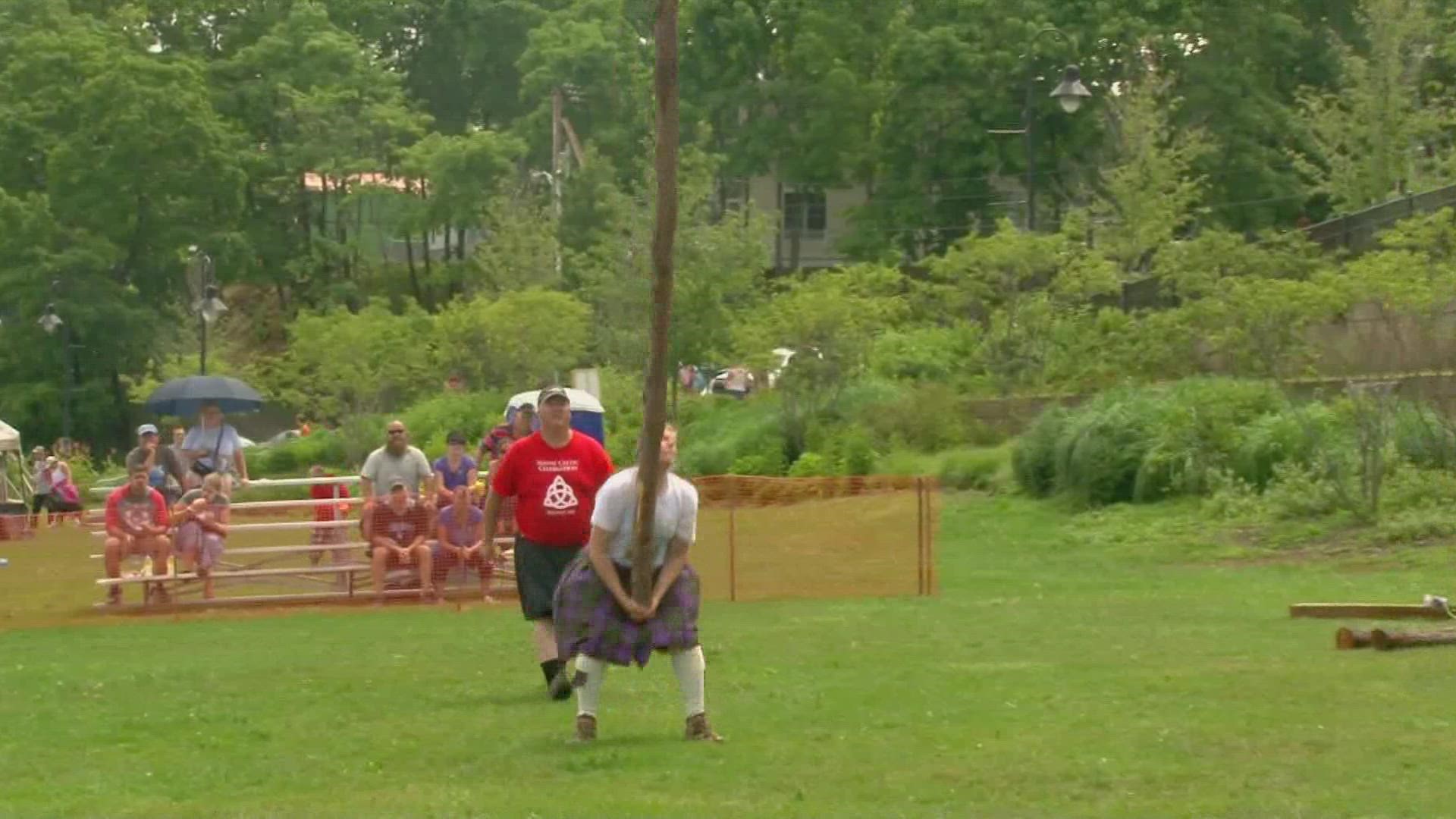MAINE, Maine — Update: The 2022 Highland Games & Scottish Festival will take place on August 19th & 20th at Thomas Point Beach in Brunswick. You can learn more about the Scottish-American heritage in Maine in the story below.
During the month of April, Scottish-American Heritage Month, the Highland Games and famous plaid tartans might come to mind, but the Scots have a long-running history of battle and fighting for their freedoms, even here in the United States.
Maine has a rich Scottish history that people are working to preserve and share with others.
John Mann and James Rodden established the Maine Ulster Scots, a non-profit dedicated to uncovering Scots-Irish ties to Maine.
Rodden, originally from Scotland, is vice president of St. Andrew's Society of Maine, an organization dedicated to preserving and promoting Scottish culture and heritage through education, outreach, scholarship, and performance.
It's also the group behind Maine's only official Highland Games, held on the third Saturday of August in Brunswick.
The Highland Games, a Scottish tradition that dates as far back as the 11th century, are not for the faint of heart. The contests of strength, like jumping, running, throwing, and riding, were first introduced as a way to select the strongest men for battle.
"There's different disciplines. There's a hammer, there's a tossing the caber, well as you guys say, 'Is that when you throw the telegraph pole?''" Rodden said.
A caber is a large piece of wood that resembles a telephone pole. Participants must pick up at the bottom, lean it on their shoulder and get a point of balance. Then, the real fun begins.
"Once you've got your point of balance, you've got to run and gain momentum, so when that is thrown properly, it will do one revolution." Rodden said. Then, if done properly, the caber should land at 12 o'clock. Any other variation does not count.
"There are also different types of weights that will be thrown over the bar, which you'll go back and forth between your legs and throw it up, not a very good health and safety thing, but that's quite popular," Rodden said. "There's also throwing the hammer ... there's an awful lot of lady athletes that are very successful in that."
The games are a piece of Scottish-American history most people have seen before. However, there are other parts people aren't so familiar with. Mann and Rodden said those aspects are vital to understanding Maine's connection to the Scots, and more specifically, the Dunbar Scots who came to America in the mid 1600s.
"The Battle of Worcester and the Battle of Dunbar both resulted in a large amount of Scottish prisoners," he said. "Many of them were marched over land into England and then auctioned off, many of them were hung. Imagine, so many of them died before they got sold because they were marched over land, many of them barefoot, most of them killed, they lived off whatever they could find on the side of the road and put in their mouths to eat."
Mann said they died of dysentery and disease before being planted in mass graves. Those strong enough to survive were put on prison ships and sent to New England.
"They were sold to work in the iron works in Saugus, sold to work in saw mills in Berwick, Maine ... many of them sold out to other various individuals," he said. "So they had left their family. None of them saw their family again ever. They got put in prison, they got whipped at the stake and when they worked off their indenture, they went on to found townships all up the coast of Maine. It's an incredible story. A story that's not written down hardly anywhere but you will find it with us."
Mann and others are documenting those stories in addition to holding conferences and lectures on the subject.
"We're becoming experts in order to tell our own story which has never been written or told before," Mann said. "They find where their families went and we find our roots and we become more whole as the people, as individuals, it's good stuff."
Thoe stories not only highlight Maine's deep connection to the Scots but, Mann believes they give new generations a sense of belonging. Mann has even had an archaeologist come to his family's cemetery in Freeport to conduct research. He said she wrote a report about the people buried there.
"She called it a testament to the grit and determination of the European people who came to Maine, and what I want people to understand is the grit and determination of those who came before them," Mann said. "Because every generation is challenged by some great event. Where do you draw your inspiration from? To face that and handle it and come out whole? Many people will not come out whole. They'll commit suicide, there will be tragedies, but some people will come out whole with their head up high and proud. Where do you go to find that? You find that among our Scottish ancestors in spades and you can draw from it and bring it in to your life."

